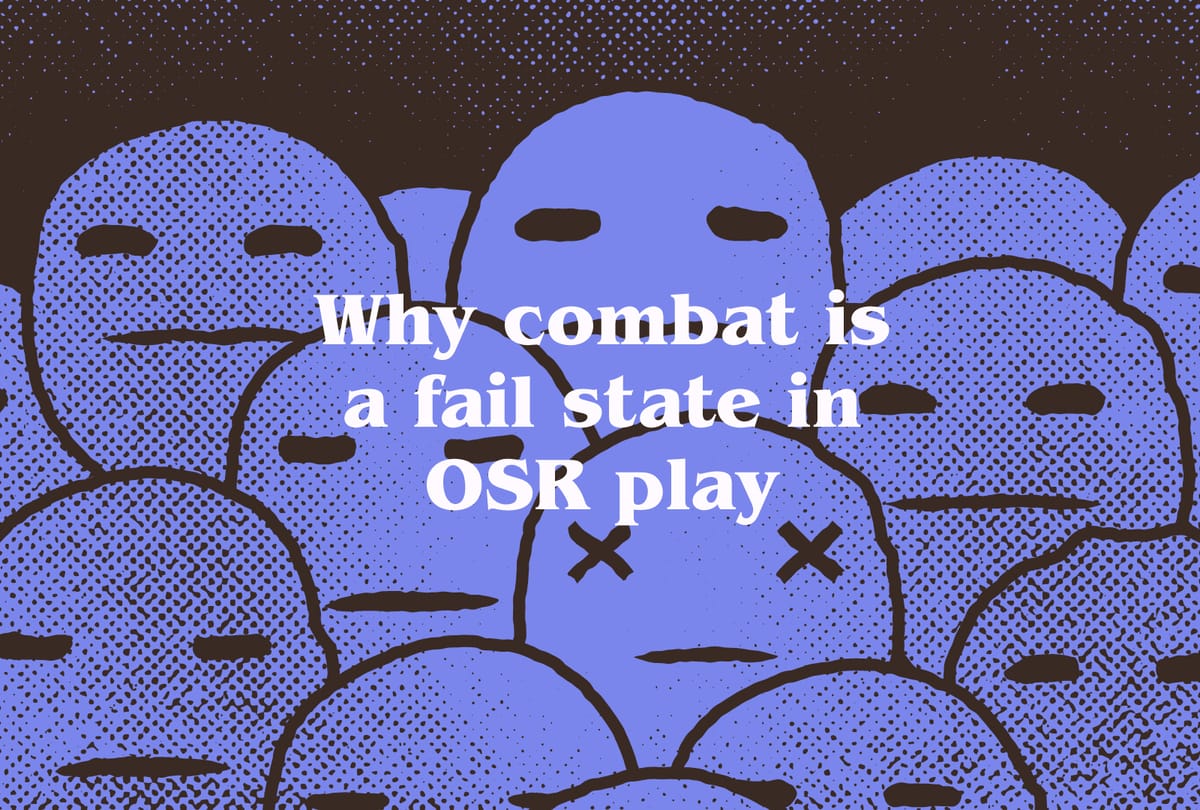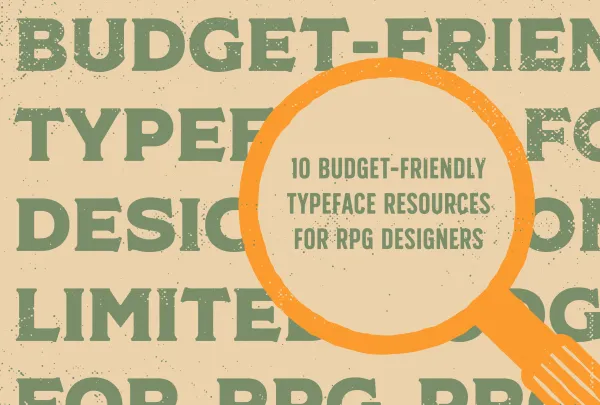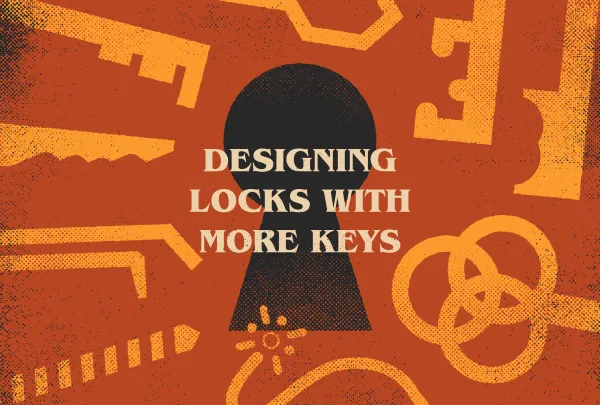Why Combat Is a Fail State
Revisiting the old-school maxim "Combat is a fail state" and redefining what it means at my table and as a design theory for the OSR.

Revisiting an old-school maxim.
Among the many maxims or aphorisms of old-school play, one of the hardest to pin down is the saying, "Combat is a fail state." The general idea of this saying is that players want to avoid combat. More specifically, they want to avoid matchups that necessitate the combat systems. This maxim is usually paired with "combat as war" rather than "combat as sport."
Forgive these imperfect definitions, old-school aficionados.
Combat as war is when the stakes are high and all bets are off. Players expect dire consequences and plan their engagements accordingly. In combat-as-war the best scenario is one where players have manipulated the battlefield, laid traps, or bypassed the combat altogether.
Combat as sport is when the stakes are relatively low and the contest is weighted in the player's favor (or made fairly forgiving). This is the usual description for D&D 5E where "balance" is an important part of adventuring and combat is meant to be engaged with directly.
Now, if you want a good rundown of the old-school or OSR maxims, you should check out Gus' article, 7 Maxims of the OSR. He covers a lot of aphorisms, their origins, and what they mean. Not surprisingly, there's a lot of nuance and depth to these sayings that pithy one-liners can't convey in the vacuum of social media.
In this article, I propose combat is a fail state by the standards of old-school game design. And not a fail state by way of playstyle or "how old-school rpgs were meant to be played." In fact, I'd argue the totemic past many base this maxim on never really existed.
To that end: some dreaded background. The phrase is hard to pin down, and hotly debated, because it means different things from one table to the next, and despite how clear and universal the phrase might seem, its meanings are many and complicated:
- It's not a maxim touted uniformly across old-school play cultures. For example, some tables consider combat a desirable outcome from decision making.
- The phrase in some ways is revisionist or anachronistic. In its original form, during the late 70s, many played D&D with massive parties that would have stood toe-to-toe against the old school modules' imbalanced hordes of monsters. Players not only commanded multiple characters but a cohort of hirelings. The fail state, therefore, is a conclusion born out of today's small parties against the Caves of Chaos. It could be seen as a misinterpretation of how games used to be played.
- However, confusingly, some old-school players did play old-school games with modern party sizes. No hirelings. No backups. Just the traditional OC in its prototypical form, but those players came from a culture of wargaming where the objective was to kill the baddies in any way possible. Did those play groups consider combat a fail state? As The Elusive Shift indicates, there is no singular answer—only a thousand answers from one table to the next. Some likely bypassed combat through rulings like in the FKR school of play.
- From a design perspective, most of the game's systems are about combat, escalate toward combat, or focus on the consequences of combat. Which brings us to another common idea within old-school play...
Do rules decide what a game is about?
While it's not a maxim of old-school play, it's often repeated like one. Forgive the clumsy paraphrasing, but some might argue:
The game isn't what the rules cover. Rules exist to elide, speed-up, or hand wave things, rendering any friction, additional conversation, or rulings unnecessary. Therefore, the game isn't necessarily about what the rules cover, but in many ways what the rules don't cover.
Note: This is only one interpretation of rules and their function.
You can see this idea materialize in theory through the other maxims of the OSR. Being creative and striving for consensus at the table is a major component of old-school play. Maxims like, rulings not rules, play the world not the rules, roleplaying not roll playing, and the answer isn't on your character sheet all point to the idea of playing pretend with things numbers and dice can't resolve.
Therefore, by not systematizing something, we give it the power to expand and dominate a part of the conversation, because without rules the fiction must be resolved through discussion. For example, by not giving characters a skill for finding traps or disarming them (but putting them in direct conflict with traps), we plant fertile seeds for emergent play about discussing how to find, avoid, and disarm traps in detail. Conversations that cannot be skipped with a skill roll.
This concept has its limitations, of course. For example, Knave 2E might be about gameplay "the rules doesn't cover" but that doesn't make it a dating game or a farm simulator. So, like all aphorisms, something else is being said:
All rules create emergent play. Either by making certain play possible, rending it impossible, or by putting players on a collision course with certain concepts, interactions, and themes.
So, why is combat a fail state?
In my opinion, the many maxims point to the same idea: old-school play is about creative solutions to open-ended problems. If you're poking things with a stick or trying to stack the odds in your favor before rolling the dice, you're probably playing what the designer, Brad Kerr, lovingly refers to as "Door D&D."
The reason why combat is a fail state in the OSR isn't because you'll die in one-on-one combat (though that might be likely), it's because combat is the point where old-school play collapses into simple hard-key, procedural, one-fix solutions.
Outside of combat, doors don't have HP, poisoned food doesn't care about THAC0, and players don't roll saves for diplomacy, but in combat, the rulings have to follow the rules. Stats, rolls, and rounds become a crucial part of the conversation and often negate it or lead it.
In other words, combat is a fail state in old-school play, because old-school combat elides the core tenets of old-school play.
Explorers Design is a production of Clayton Notestine. If you liked this article, please consider liking, sharing, and subscribing. Members who pay $5/month also get access to additional tools, templates, and inspiration.





